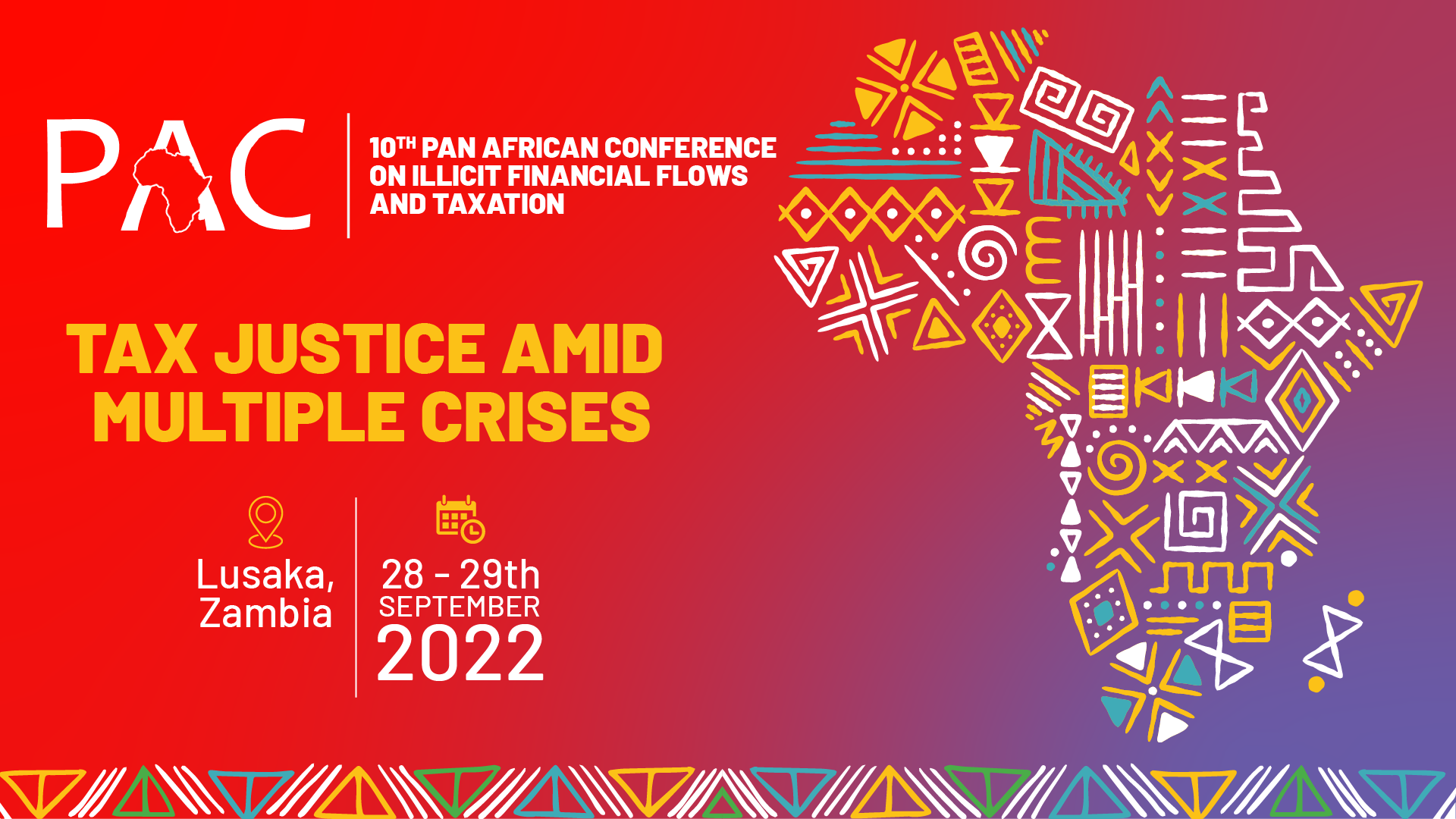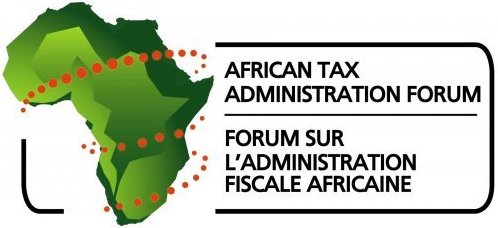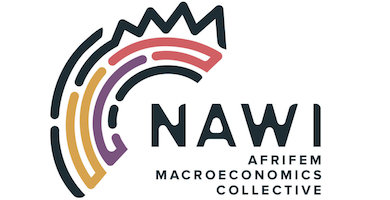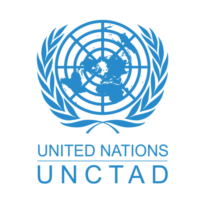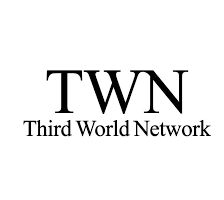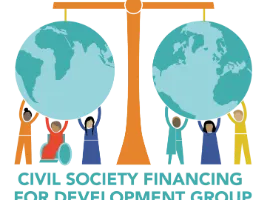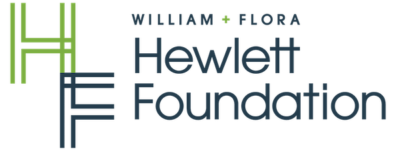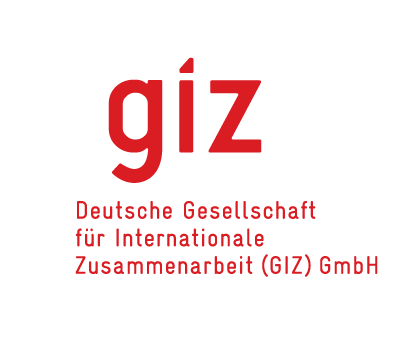PAC LIVESTREAM
The 10th Pan African Conference on Illicit Financial Flows and Taxation
After ten years of hosting the Pan-African Conference (PAC) on Illicit Financial Flows and Taxation, this year, Tax Justice Network Africa (TJNA) is excited to co-host its 10th PAC alongside the African Tax Administration Forum (ATAF).
Over the years, TJNA and ATAF have advocated for pro-poor tax policies and systems that curb leakages and optimise domestic resource mobilisation on the continent. The uncertainty of the current global economy has made this mission more critical than ever. As such, in light of the present context, the 2022 PAC will be held under the theme ‘Tax Justice Amid Multiple Crises.’ And in the spirit and tradition of the PAC, the two lead institutions will collaborate with other organisations to deliver a successful 10th PAC.
Event Speakers
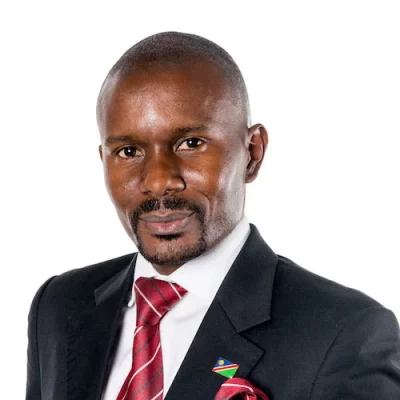
Sam Shivute

Isaac Mwaipopo

Darlington Muyambwa

Veronica Zano

Fred Kabanda

Viola Tarus
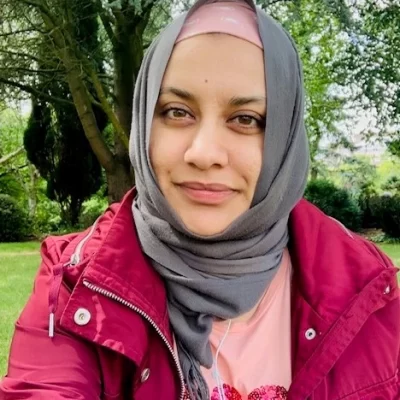
Lyla Latif

Hon Gladys Ganda
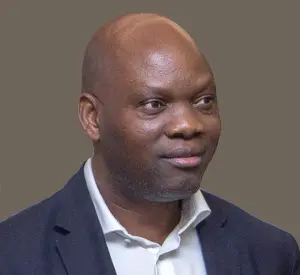
Prof. Adriano Nuvunga

Stefano Prato
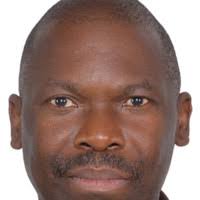
Allan Mukungu

Luckystar Miyandazi
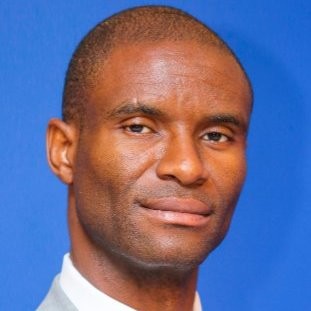
Dr. Patrick N’Dzana Olomo

Titus Gwemende
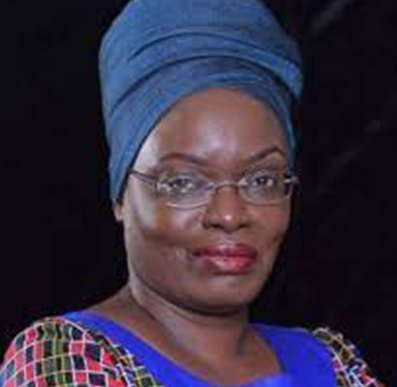
Irene Ovonji-Odida
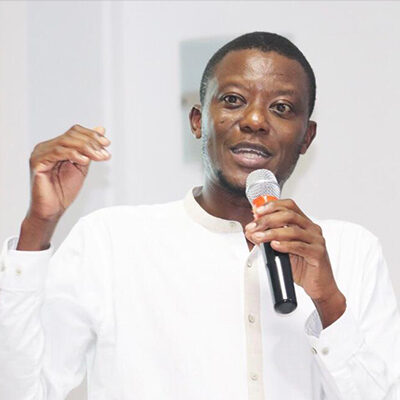
Alvin Mosioma

Rodgers Kidiya

Thulani Shongwe

Crystal Simeoni
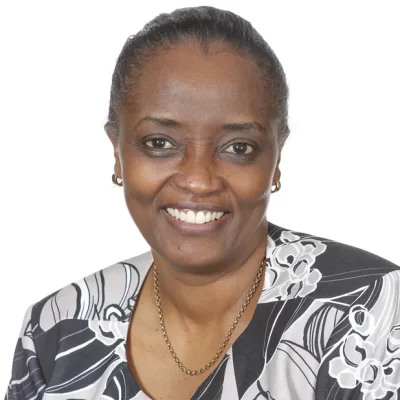
Mary Baine
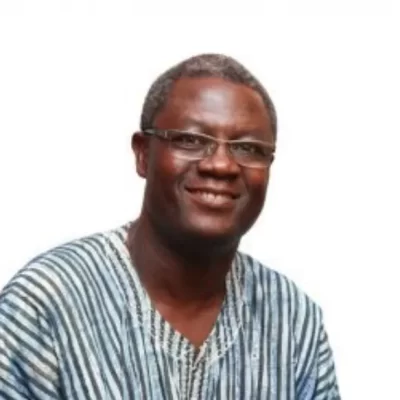
Charles Abugre
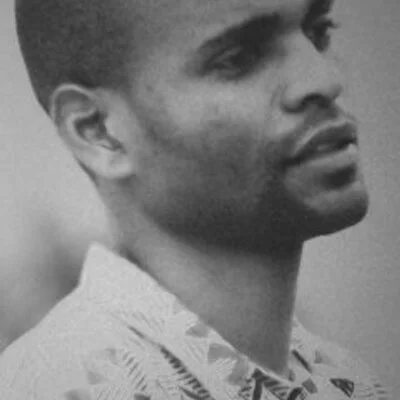
Eneya Maseko

Lazarus Amukeshe

Mustapha Ndajiwo
Conference Schedule
Unpacking the Theme: Tax Justice Amid Multiple Crises
- Charles Abugre Crystal Simeoni Irene Ovonji-Odida Titus Gwemende
This session will focus on understanding the conference's theme, ‘Tax Justice Amid Multiple Crises.’ It will set the stage for the conference by exploring the current global environment and the impact this has had on the African countries’ ability to raise much-needed resources for their recovery fairly and equitably.
IFF Recommendations and the International Financial Architecture
- Mary Baine Dr. Patrick N’Dzana Olomo Allan Mukungu Luckystar Miyandazi Stefano Prato
This session will look at the various recommendations of the High-Level Panel on Illicit Financial Flows from Africa and the High-Level Panel on Financial Accountability, Transparency and Integrity (FACTI) High-Level that focused on how Africa should position itself within the international tax system. It will unpack the current discussions on the reform of the global tax system, understand the implications they will have on African countries, and explore possible collective action. Panelist: Mary Baine, African Tax Administration Forum Panellist: Charles Abugre, Executive Director, IDEAs Panellist: African Union, TBC Panelist: Allan Mukungu, UNECA TBC Panellist: Luckystar Miyandazi, UNDP
Maximising customs efficiencies to minimising IFFs
Maximising customs efficiencies to minimising IFFs
Activating the levers for reforms on Illicit financial flows in Africa
Room 1: Transparency International / Stop the Bleeding
Statistical Measurement of IFFs – estimation process and lessons learned
Room 2: United Nations Conference on Trade and Development and United Nations Economic Commission for Africa Statistical Measurement of IFFs – estimation process and lessons learned
Launch of the AFRODAD Public Debt Tool Kit
Room 3: African Forum on Debt and Development Launch of the AFRODAD Public Debt Tool Kit
IFFs, Gender and Inequality
According to the UN Conference on Trade and Development (UNCTAD), Africa loses about US$88.6 billion, 3.7 per cent of its gross domestic product (GDP), annually in illicit financial flows. These revenues are lost through international corporate tax avoidance and as much as 30 percent of African wealth is stashed in tax havens. Amidst stagnating DRM, rising public debt and economic shocks resulting from the COVID-19 pandemic, many developing countries are faced with enormous challenges delivering inequality-reducing social services such as health, education and social protection[ See report at; https://www.oxfam.org/en/research/africas-extreme-inequality-crisis-building-back-fairer-after-covid-19 ]. The situation is compounded by the tax system that does note adequately redistribute income in a gender-responsive way; At international level, IFFs worsen inequality between developed and developing countries, while their implications on social service delivery also worsen inequality between segments of society and notably gender inequality. The fight against inequality cannot be complete without concerted efforts to address IFFs particularly in developing countries and regions. This session will present Oxfam, FEMNET and partners’ work on inequality and explore its linkages with IFFs, with a view to expand discussions and advocate for policies to tackle the complex dual challenges of IFFs and Inequality. Moderator: Mr. Robert Ssuuna-Fiscal Justice Coordinator-FEMNET Speakers Speaker 1: Mr. Gerald Byarugaba Regional Advisor, Extractive Industries & Fiscal Justice, Horn, East & Central Africa (HECA) Oxfam International. Speaker 2: Mr. Olweny Joseph-Program Manager, Governance and Accountability, Oxfam in Uganda Speaker 3: Representative from Women Rights Organisation (Uganda and Zambia) Speaker4: Mr. Richard Kampamba - Program Coordinator – Governance Oxfam in Southern Africa
Innovative Progressive Domestic Resource Mobilisation Strategies
- Thulani Shongwe Rodgers Kidiya Lyla Latif Hon Gladys Ganda
This session will look at the innovative ways African countries have raised resources and curbed illicit financial flows over the past few years in light of the constraints they have faced over the past few years. It will highlight case studies and seek to draw lessons that could be extended to other countries in the region.
Shaky Pillars won’t hold – why developing countries in the Global South should reject the OECD tax deal
Leveraging on regional integration to address the Multiple Crises - Opportunities, Lessons & Challenges from Zambia, and DRC’s collaboration on manufacturing on lithium batteries
Domestic Resource Mobilisation Within the Context of Climate Change
- Viola Tarus Fred Kabanda Veronica Zano Darlington Muyambwa
This session will focus specifically on the climate change crisis. Given the challenges and opportunities that this crisis presents, panellists will identify ways that African countries can position themselves to mitigate against and adapt to the negative impacts of the crisis while leveraging their natural resources in their domestic resource mobilisation efforts.

